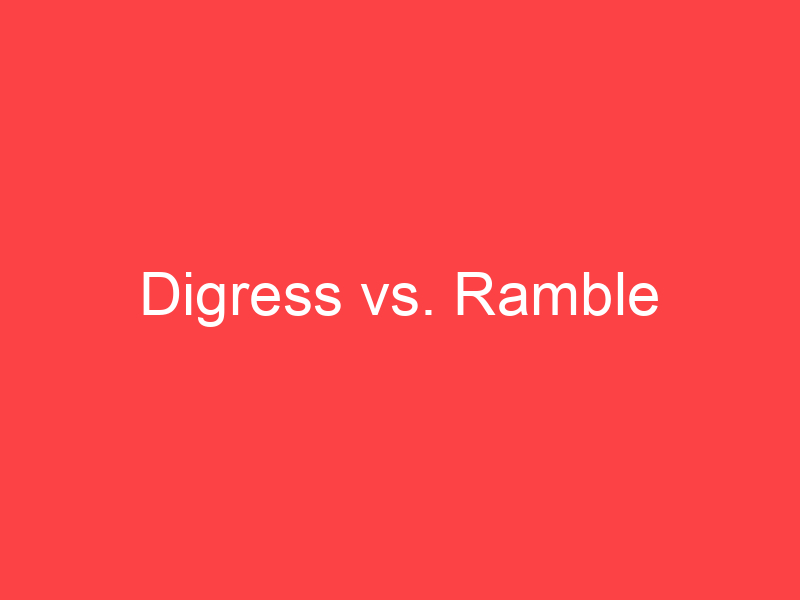-
Digress
Digression (parekbasis in Greek, egressio, digressio and excursion in Latin) is a section of a composition or speech that marks a temporary shift of subject; the digression ends when the writer or speaker returns to the main topic. Digressions can be used intentionally as a stylistic or rhetorical device.
In classical rhetoric since Corax of Syracuse, especially in Institutio Oratoria of Quintilian, the digression was a regular part of any oration or composition. After setting out the topic of a work and establishing the need for attention to be given, the speaker or author would digress to a seemingly disconnected subject before returning to a development of the composition’s theme, a proof of its validity, and a conclusion. A schizothemia is a digression by means of a long reminiscence.
Cicero was a master of digression, particularly in his ability to shift from the specific question or issue at hand (the hypothesis) to the more general issue or question that it depended upon (the thesis). As was the case with most ancient orators, Cicero’s apparent digression always turned out to bear directly upon the issue at hand. During the Second Sophistic (in Imperial Rome), the ability to guide a speech away from a stated theme and then back again with grace and skill came to be a mark of true eloquence.
-
Digress (verb)
To step or turn aside; to deviate; to swerve; especially, to turn aside from the main subject of attention, or course of argument, in writing or speaking.
-
Digress (verb)
To turn aside from the right path; to transgress; to offend.
-
Ramble (noun)
A leisurely stroll; a recreational walk in the countryside.
-
Ramble (noun)
A rambling; an instance of someone talking at length without direction.
-
Ramble (noun)
A bed of shale over the seam of coal.
-
Ramble (noun)
A section of woodland suitable for leisurely walking.
-
Ramble (verb)
To move about aimlessly, or on a winding course
-
Ramble (verb)
To walk for pleasure; to amble or saunter.
-
Ramble (verb)
To talk or write incessantly, unclearly, or incoherently, with many digressions.
“Francine has a tendency to ramble when it gets to be late in the evening.”

